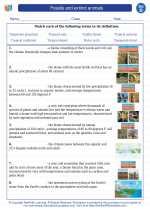Volcanoes
A volcano is a mountain that opens downward to a reservoir of molten rock below the surface of the Earth. When pressure builds up, eruptions occur. In an eruption, gases and rock shoot up through the opening and spill over or fill the air with lava fragments.
Types of Volcanoes
- Shield Volcanoes: These have broad, gently sloping sides and are formed by the eruption of low-viscosity lava that can flow long distances.
- Stratovolcanoes (or Composite Volcanoes): These have steep sides and are formed by the eruption of viscous lava, ash, and rock.
- Cinder Cone Volcanoes: These are the smallest type of volcano and are formed from the accumulation of tephra (volcanic debris) around the vent.
Volcanic Eruptions
Volcanic eruptions can have various impacts on the environment, such as releasing gases like carbon dioxide and sulfur dioxide, causing ash fall, and triggering pyroclastic flows and lahars. Eruptions can also create new landforms, such as islands and mountains.
Volcanic Monitoring and Prediction
Scientists use various methods to monitor volcanoes, including seismographs, gas sensors, and satellite imagery, to predict eruptions and mitigate their impact on communities.
Study Guide
- What is a volcano?
- Identify and describe the three main types of volcanoes.
- Discuss the impacts of volcanic eruptions on the environment.
- How do scientists monitor and predict volcanic eruptions?
Studying volcanoes can be an exciting and fascinating journey into the Earth's geological processes and the impacts they have on our planet.
[Volcanoes] Related Worksheets and Study Guides:
.◂Science Worksheets and Study Guides Fourth Grade. Fossils and extinct animals

 Worksheet/Answer key
Worksheet/Answer key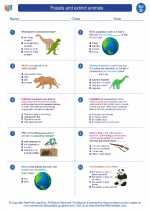
 Worksheet/Answer key
Worksheet/Answer key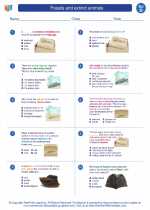
 Worksheet/Answer key
Worksheet/Answer key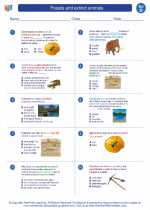
 Vocabulary/Answer key
Vocabulary/Answer key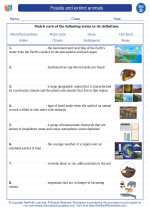
 Vocabulary/Answer key
Vocabulary/Answer key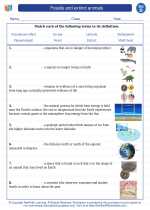
 Vocabulary/Answer key
Vocabulary/Answer key
 Vocabulary/Answer key
Vocabulary/Answer key